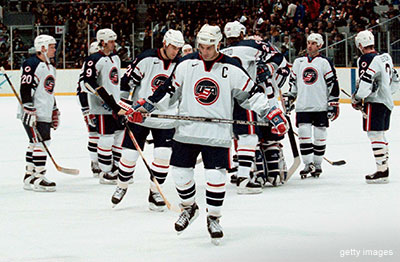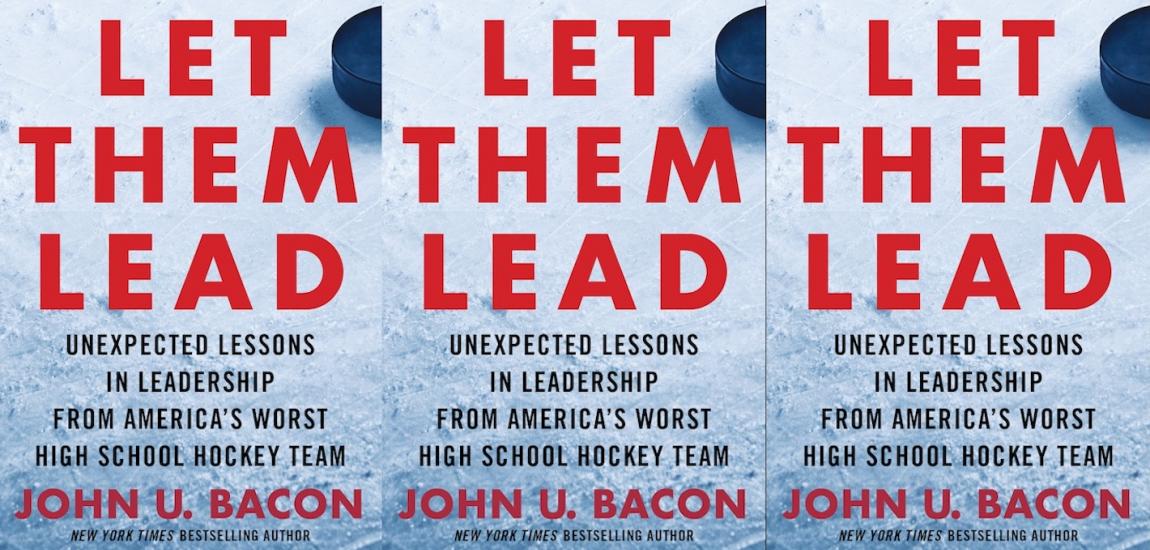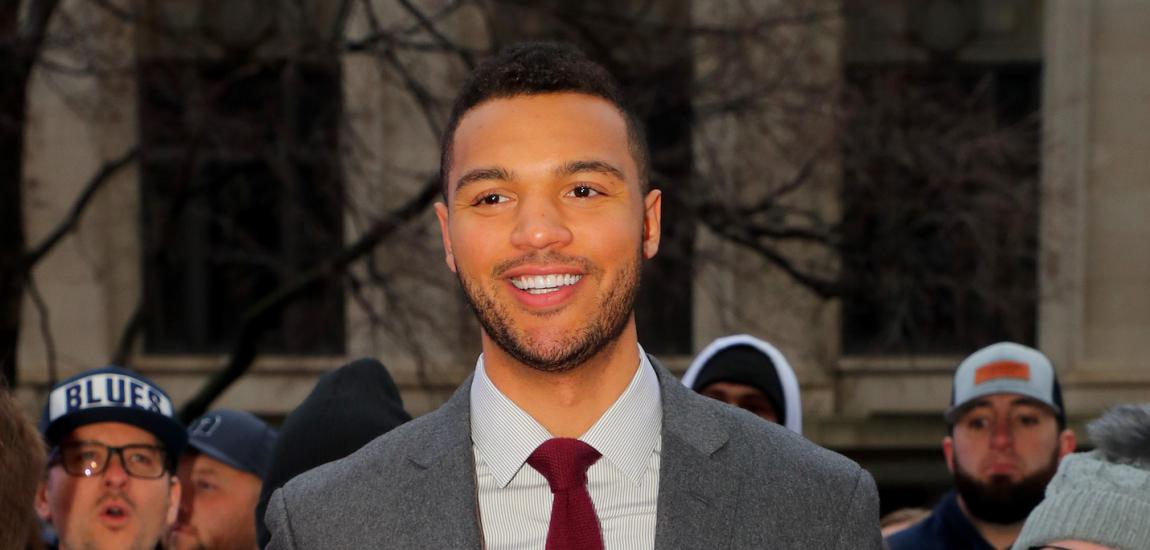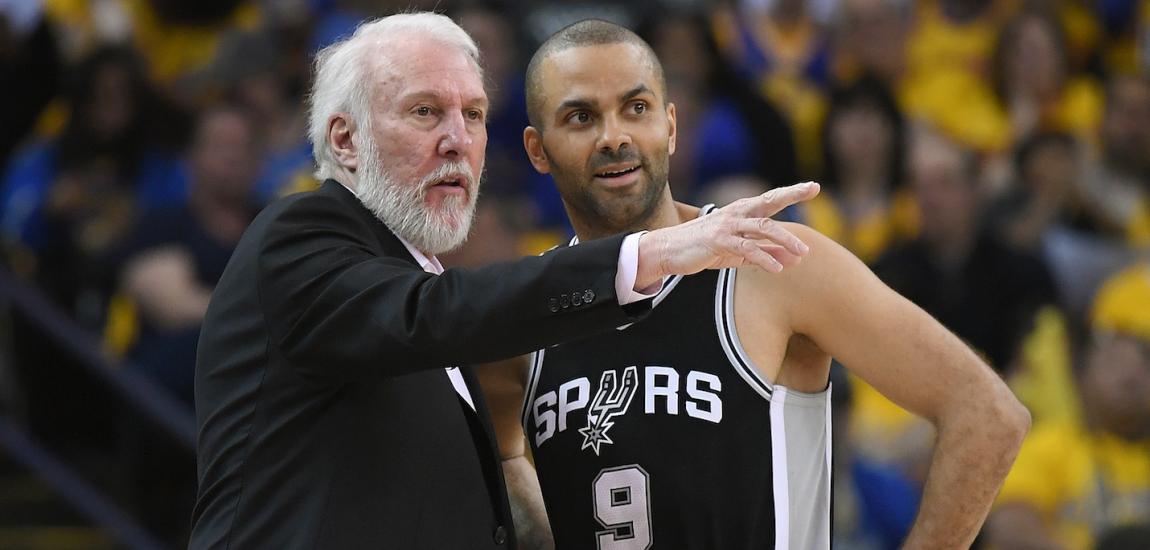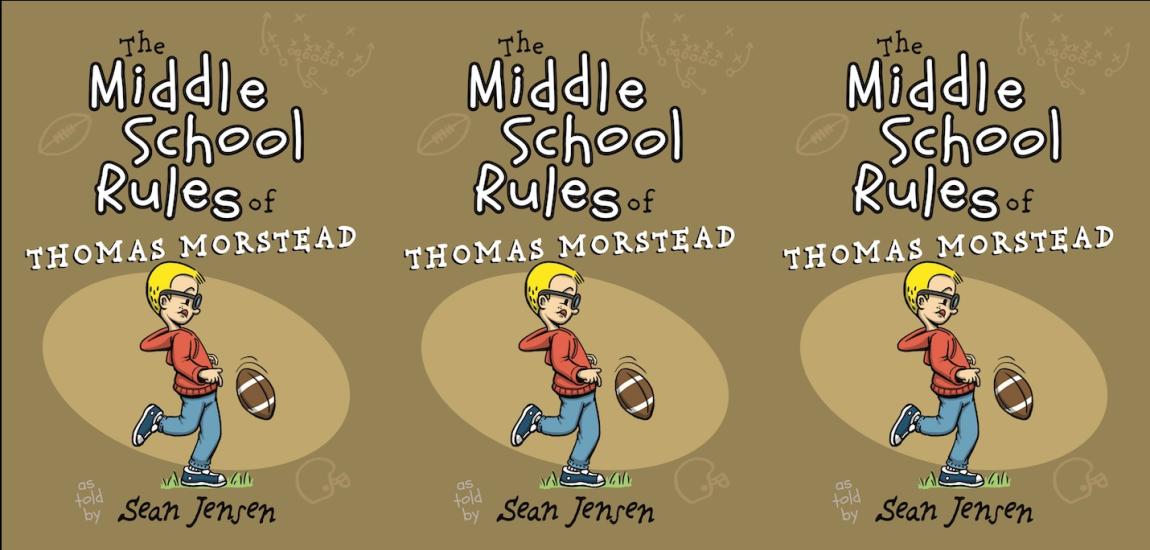Hall of Famer Chris Chelios holds the NHL record for most games played in a career by a defenseman with 1,651 and earned the Norris Trophy three times. Chelios won two Stanley Cups with the Red Wings and one with the Canadiens. He served as captain for the United States team that won 1996 World Cup. He was also captain for the Olympic team in 1998, 2002 (winning a silver medal) and 2006. In his new book, Chris Chelios: Made In America, he explains why he remains loyal to his American teammates by not naming names of those who damaged some dorm rooms at the 1998 Olympics in Nagano.
On the morning the American hockey team was scheduled to leave the 1998 Olympic Games in Nagano, Japan, my U.S. teammate John LeClair pulled me aside to say he had fixed a "little problem" the boys had created the night before.
"The guys messed up the rooms a little bit," LeClair said. "But don't worry, I took care of it. I tipped the maids and it is all going to be taken care of."
By the time we arrived at the airport the vandalism was being treated in the media like a war crime. I blame the Canadian press for making it a much bigger event than it was.
My theory is that Canada’s poor performance at the Olympics had left Canadian reporters with nothing to write about. We were a target of opportunity.
The media was waiting for us in force when we arrived at the airport. It was a mob scene.
I had actually learned about the situation before LeClair told me. When teammate Gary Suter and I had returned to the Olympic Athletes Village the night before after being out with some members of the U.S. women's hockey team, we noticed that we were creating white footprints with each step we took as we got closer to our rooms.
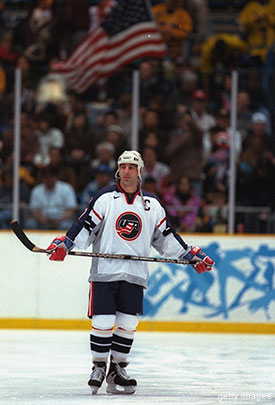
"It’s not snowing,” I said. “What’s going on?"
Then I thought, Oh, no.
Most of the players had already checked out. We determined quickly it was fire extinguisher foam that we were stepping in, and when I looked inside the rooms I knew there was likely to be trouble in the morning.
Unquestionably, it was stupid for the guys to mess up the rooms. It was an embarrassing situation. But these rooms were not damaged beyond repair. The initial estimate of damage was about $1,000, and as the story gained momentum in the press the estimated damage grew to $3,000.
My U.S. teammate Jeremy Roenick has always insisted that someone could have cleaned up the mess reasonably well with a regular old shop vac. Some of the damage to the chairs happened during the tournament because they were not designed to be used by heavy, big-bodied athletes. Some players simply sat down and the chairs disintegrated beneath them.
As captain, I had anticipated the potential for trouble after we lost our last game. This was two years after we had won the World Cup, and the Americans were considered one of the favorites to win the gold medal. Unfortunately, we played poorly in the Nagano tournament. After claiming a 2–1 lead in our first game against Sweden, we lost 4–2.
After taking care of Belarus 5–2, we then lost to Canada 4–1. The loss to Canada was stinging because it had only been 19 months since we had beaten that group in Montreal for the World Cup championship.
You don't want to believe this when you are a player, but anything can happen in a short tournament like the Olympics.
When I look back on it, what I remember is that we simply never had a great game. Nothing went right for us. Nobody was playing at his best.
With the likes of Roenick, Mike Modano, Brett Hull, Keith Tkachuk, LeClair, and Bill Guerin, we should have been a dominant offensive team. LeClair was in the midst of scoring 50 or more NHL goals for three consecutive seasons, but he didn't score a goal in that tournament. That’s not to single out LeClair; it is an illustration of how nothing went right for us.
We were outscored 14–9 in that tournament, and if you don't count the Belarus game, we were outscored 12–4 by the teams with NHL players (Canada, Sweden, and the Czechs).
Against Canada, we just couldn't cover anyone in front of our net. The Canadians scored four goals by parking in front of the crease. The puck would wind up in front and a split-second later it would be behind our goalie Mike Richter.
We were just flat, and I don’t know why. Was it the wider European ice surface? I just don’t know. When you look at the roster, we should have played better than we did.

Some minor issues had cropped up. Because we had won at the World Cup, our coach Ron Wilson gave us plenty of leeway, even going as far as asking us how we wanted to play.
Now, despite what I've described about a give-and-take between coaches and players, a hockey team still needs structure. Teams should be run like the military. Soldiers and players expect to be told what to do.
But that certainly had nothing to do with the fact that none of us were at our best.
Some members of the media speculated that we lost because we spent too much time partying in Nagano. But that simply wasn't true.
"I was in bed by 8:00 pm eight of the 10 nights I was here," Hull told the media. “It was ridiculous the amount of time I spent listening to my CD player and doing crossword puzzles on my bed because I was bored stiff."
Maybe that was our problem. Maybe we should have lit up Nagano.
"You know, we weren’t exactly angels at the World Cup," Hull said.
Even after our poor start, we could have still won the tournament if we had played well in the medal round. But Dominik Hasek made 38 saves to spark the Czech Republic to a 4–1 win against us in the quarterfinals. The Czechs went on to win the gold medal, but we felt like we were beaten by a team that we should have defeated, no matter how well Hasek played.
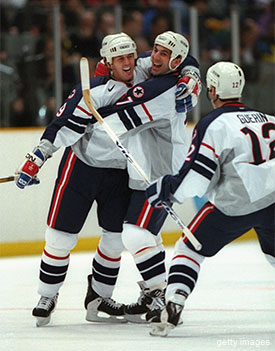
The shame of it was that all of us had been excited about being at the Olympics. We wanted to be on the big stage. We wanted to play for our country. We wanted to kick the Canadians' asses again. We wanted the gold medal.
Before the tournament, Tkachuk said anything less than gold would be a disappointment.
"We thought we were going to be invincible, and maybe we were too high on our horses," Hull said.
LeClair said players were "embarrassed" that we were going home without a medal. And we were. We knew we were capable of playing much better than we did.
After the loss to the Czechs, the mood in our dressing room was ugly. Guys were frustrated, and after a loss hockey players will say things they regret.
Tkachuk was the angriest player. “This was the biggest waste of time ever,” he said. “I hate to be negative, but this is disgusting."
I can tell you that Tkachuk, the son of a Boston-area firefighter, loved representing his country and he didn’t mean those words quite like they sound in print.
Guys were frustrated and I suspected some of them might get out of hand that night.
Something needed to be said. I pulled aside Tkachuk, Roenick, and Guerin and said, "It’s bad enough how we lost. Let’s make sure no one does anything stupid tonight."
I still remember Tkachuk getting this sincere, serious look on his face and saying, "We would never. We would never."

Even though it’s been 16 years since it happened, I’m still not going to say who was responsible. That’s just not who I am. Teammates stick together. When it comes to something like this, you keep it in the dressing room.
But I can tell you that NHL commissioner Gary Bettman and former NHLPA executive director Bob Goodenow knew the entire story quickly, because one of my teammates provided details after the IOC threatened to ban us from Olympic competition for life if we didn’t reveal who was responsible.
Despite the pressure, I made up my mind that no one on our team was going to discuss what happened publicly or admit to anything. As captain, I was going to apologize to everyone for the incident and personally cover any damages. We were going to stick together as a team. I put the word out and everyone clammed up. I still believe today it was the right thing to do.
I wrote a check for $3,000 to the Japanese Olympic Committee to cover the cost of fixing up the rooms.
In my apology, I called our actions "inexcusable."
"I want to take this opportunity to apologize to the people of Japan, the Japanese Olympic Committee, the USOC, and to all hockey fans throughout the world,” I said. “Bitter frustration at our own level of play caused a few team members to vent their anger in a way which is not in the tradition of NHL/Olympic sportsmanship."
The only good memory I have of that mess is that Blackhawks owner Bill Wirtz was the one man who supported our decision to not name the players involved.
My apology was made one day after Mr. Wirtz blasted the continuing investigation and the increasing criticism we were receiving over the vandalism. He compared the NHL's inquiry to paranoid Captain Queeg’s probe of the stolen strawberries in the 1954 movie The Caine Mutiny.
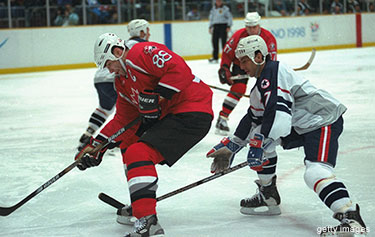
"They were eliminated from competition, which is the worst thing that can happen to a hockey player, and in their frustration, they broke some chairs," Wirtz wrote in a letter to Bettman and representatives of USA Hockey, the USOC, and the NHL Players Association.
Wirtz made it clear that he believed the investigation was essentially a witch hunt. The International Olympic Committee seemed to want to have someone burned at the stake over this.
"It seems like all you gentlemen are great fans of Jonathan Swift in that you use exaggeration for effect -- like the Brobdingnagians and Lilliputians in Gulliver's Travels," wrote Wirtz. "This incident is not the Black Sox scandal, but merely a group of dedicated NHL players disgusted in themselves [because] they did not do better for their country at the Olympics."
He was right. And he wasn't done writing.
"Please take the ball bearings out of your hands and let's get on with our work," Wirtz said. “You do not have the power to grant partial immunity or haul these players in front of a grand jury, and you do not have the right to invade their dressing room. Instead of castigating these individuals, why don’t you thank these young men for breaking their backs to compete in the Olympics and then come home to compete for the Stanley Cup?"
Wirtz said he would be proud to have any of us as his sons, including those who perpetrated the vandalism. He announced that he supported our decision not to single anyone out.
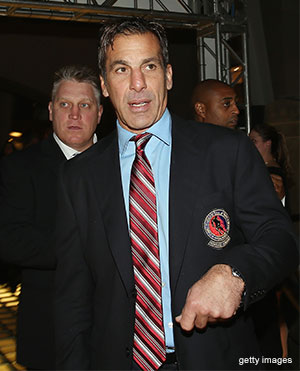
"We preach to our players that hockey is a team sport and that teams win championships, not individuals," Wirtz wrote in his letter. "It is only natural that players stick together. I would not respect them if they did not."
Say what you will about the way Wirtz ran his Blackhawks team, but he stood up for his players. Blackhawks Tony Amonte, Keith Carney, Gary Suter, and myself were on that U.S. team, and he had our backs. Fans were always mad at him because he wouldn't televise home games, but I found that you always knew where you stood with Mr. Wirtz.
He had old-school principles, and he and he didn't compromise those principles under any circumstances. I could relate to that approach.
Shortly thereafter, I received a personal check from Wirtz to reimburse me for the money I paid to cover the damages. The players responsible for the damages also gave me checks to cover it.
We got ourselves into an embarrassing mess, and somehow I ended up making a profit out of it.
-- Excerpted by permission from Chris Chelios: Made In America by Chris Chelios With Kevin Allen. Copyright (c) 2014 by Chris Chelios and Kevin Allen. Published by Triumph Books. All rights reserved. No part of this excerpt may be reproduced or reprinted without permission in writing from the publisher. Available for purchase from the publisher, Amazon, Barnes & Noble and iTunes. Follow Kevin Allen on Twitter @ByKevinAllen.


